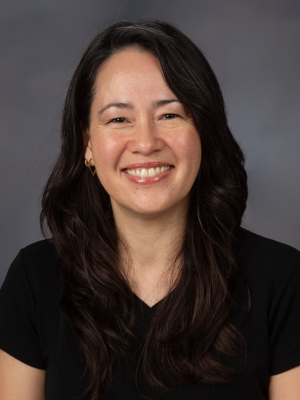Fellow Statements
- CRRC Home
- About the CRRC
- 2023 Graduate Student Cardiovascular Renal Research Symposium
- Current Trainees
- Prospective Trainees
- Apply Now
- Core Facilities
- Contact the CRRC
- Support the Cardiovascular-Renal Research Center
Meg Mills
 My interest in biology began in early elementary years collecting praying mantises, breeding crickets and raising tadpoles in early elementary school. My research experience began with my student worker job while working towards my bachelor’s degree in microbiology and biochemistry at Louisiana State University with Dr. James Moroney, studying Chlamydomonas rheinhardtii with then postdoctoral fellow, Dr. Sergio Colombo. I received research and academic awards during my undergraduate years.
My interest in biology began in early elementary years collecting praying mantises, breeding crickets and raising tadpoles in early elementary school. My research experience began with my student worker job while working towards my bachelor’s degree in microbiology and biochemistry at Louisiana State University with Dr. James Moroney, studying Chlamydomonas rheinhardtii with then postdoctoral fellow, Dr. Sergio Colombo. I received research and academic awards during my undergraduate years.
As a graduate assistant, I studied Streptococcus pneumoniae with Dr. Larry McDaniel. I gained experience in an array of molecular techniques, cloning, characterization of proteins and immunization and challenge of mice. I investigated a previously uncharacterized protein, PcsB, as a potential protein-based vaccine candidate for S. pneumoniae. My first author publication was based on the characterization studies of the protein. After completion of my doctoral studies in 2009, My husband and I took an opportunity to move to Peru and pursue work with a non-profit organization, Peru Mission (perumission.org). We currently have four children who at that time were very young, and I decided to dedicate my time to their care as well as various philanthropic and ministerial activities connected to Peru Mission. In 2022, we made the difficult decision to leave the work in Peru for my husband to continue his education in the US. For me, this was an ideal opportunity to pursue my scientific passion and recommence my career in research.
I have been interested in the immune response since my doctoral studies and now I am shifting to focus on the role of endothelin-1 in inflammation, especially in the setting of obesity. Using various tissue specific knockout mice that are available in my postdoc lab, I hope to elucidate the mechanisms involved in the inflammation that accompanies obesity and insulin resistance. My postdoctoral advisor, Dr. Joshua Speed, has copious experience and publications in his field and will provide mentorship throughout our training plan, which includes learning physiology, mentoring graduate students, grant writing, and administrative roles. The Physiology and Biophysics department has access to many core facilities, such as flow cytometry and cell sorting, proteomics, and high-throughput sequencing that I will utilize during my fellowship. Even after a significant absence, I will strive to attain a productive career as an independent researcher and contribute to the field of physiology.


